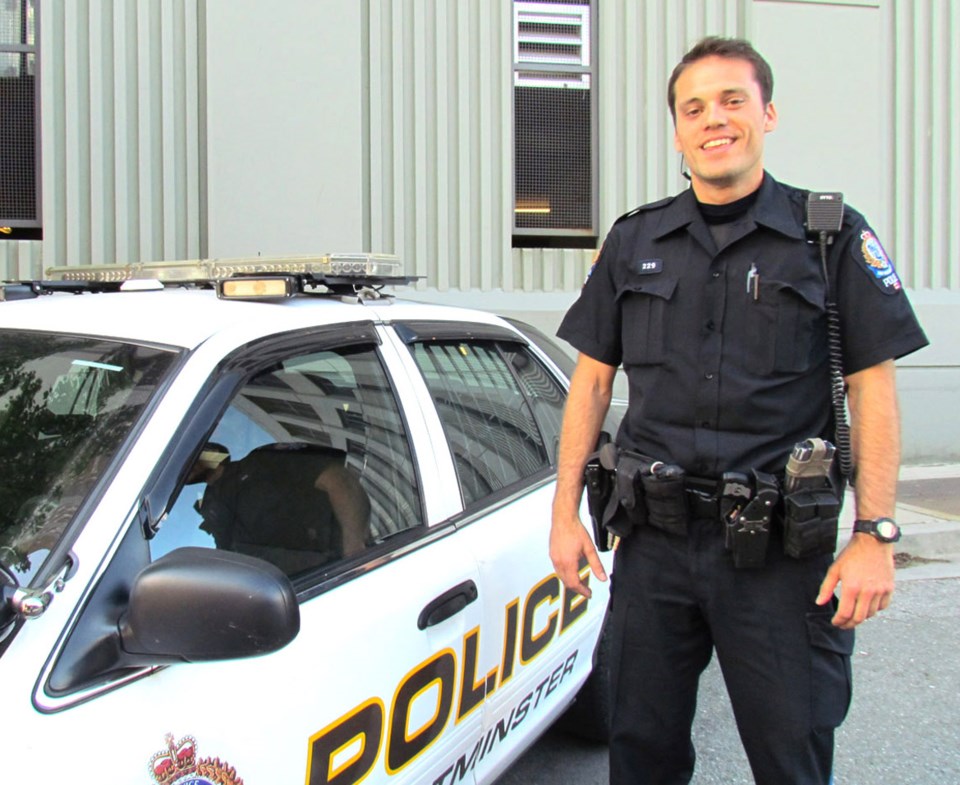When Const. Arthur Wlodyka began his new post as the New Westminster Police Department’s mental health intervention coordinator, he knew there was a need for the service, but he had no idea how big that need really was.
“I don’t know if anything could have prepared me for just how much need there really is. There are some days where I will be literally getting radio transmissions, phone calls, and my cellphone will not stop ringing all day long,” Wlodyka said.
When he first took up the position in May, Wlodyka had planned partnerships with mental health professionals, including nurses, social workers and doctors, but as with many things in life, the best laid plans don’t always go as expected.
Community response to the new unit went above and beyond what Wlodyka had expected. Four months into the job, and not only has he formed partnerships with Fraser Health, he also has partnerships with community organizations, families of people with mental illness, probation officers, support groups, Royal Columbian Hospital, and even care homes. On a daily basis, Wlodyka receives phone calls and emails from dozens of these groups.
“(They’re) just looking for support in dealing with clients with mental illness,” he said.
This provides for a very unique work environment.
“It’s kind of a hybrid of everything, which keeps it really exciting,” he said.
When he’s not working on scene, Wlodyka spends his day filling new information into the database of “high-service” clients – a database he created, maintains and is constantly updating. The database tracks clients, or individuals, who generate multiple police calls a week and provides patrol officers with information on known case workers, housing, and anything else that could help them better handle the situation.
Another big accomplishment for the fledgling unit has been the reduction in time spent by officers waiting to check in clients at Royal Columbian Hospital.
Wlodyka said prior to him starting, officers would spend almost two hours waiting at the hospital to check in mental health patients who’d left the hospital prior to being released. These patients have already been seen by a doctor in the community or were already registered with the hospital and officers were simply returning these people to the care of the hospital, he said.
According to Wlodyka, after working to streamline the process, wait times for officers has been reduced to under a half hour – a huge improvement, he added.
For new patients being admitted to the hospital by police, Wlodyka said by collaborating with Fraser Health, they’ve found another way of reducing time spent by officers at the hospital.
“We can actually reduce our apprehensions because we have more expertise at some of these calls to make assessments, and they (the mental health workers are), often times, de-escalate the crisis and come up with alternative plans within the community,” he said.
Only the people that need it the most are being taken to the hospital because they’re getting the help they need on the front line, Wlodyka added.
“The community health workers are able to find another option for that person,” he said. “That works out better for everyone. This person then is not waiting indefinitely at the hospital, where they may not even be admitted at the hospital.”
Wlodyka said both the city and the police department are constantly looking at the progress his one-man unit is making, and one day he hopes upper management will see a need to expand the position to three staff, including a full-time mental health worker.



